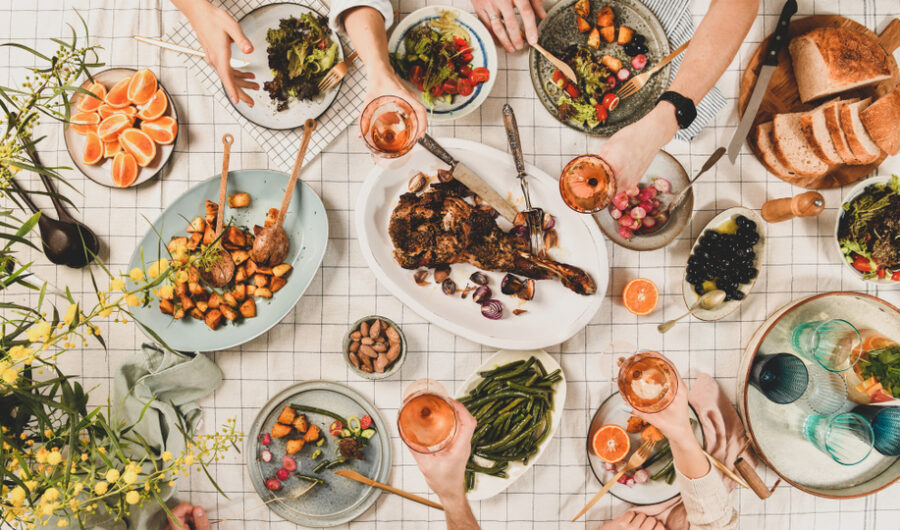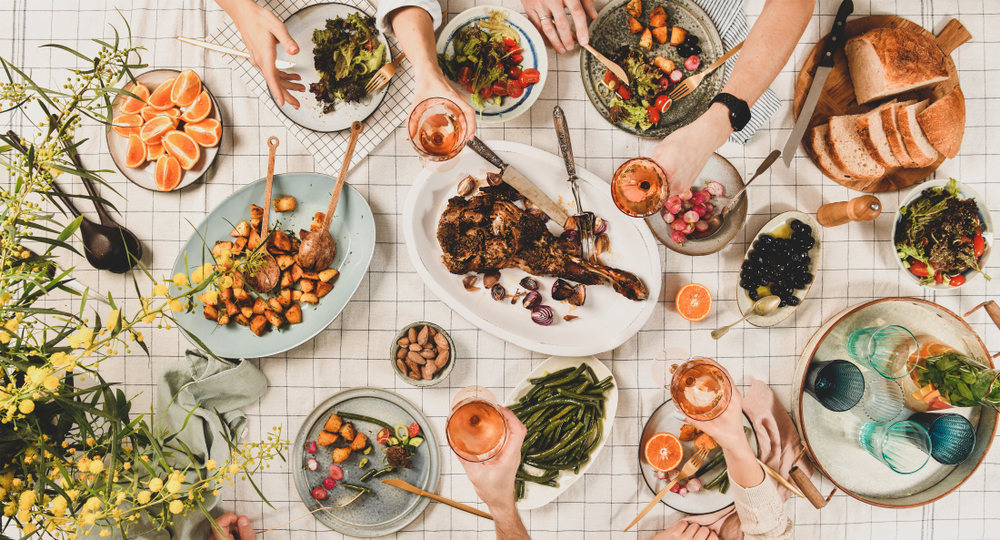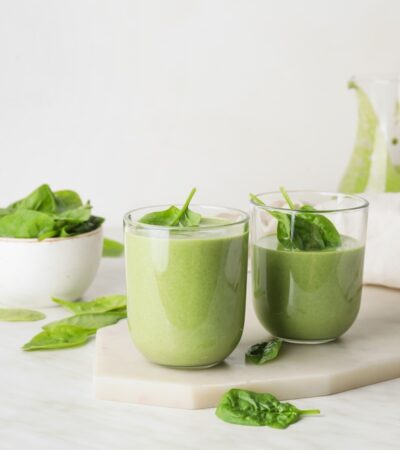Did you know that we have more gut bacteria than skin cells on our body? In fact, they weigh around 2 kg, which is the same weight as two bags of Brussels sprouts and outnumber our human cells by 10-1! The gut microbiota is a collective term for all the microorganisms residing within the gut. We have a mutualistic relationship with our gut bacteria, they need a place to live, eat and reproduce and in turn, their metabolic activity supports our own health in multiple ways. Our gut bacteria play a key role in digesting the food we eat, including the production and absorption of nutrients. Our gut microbes have also been shown to play a role in optimum immune function, weight and even mood. Unfortunately, due to the widespread antibiotic use, chronic stress, and low fibre diets our gut microbiota and overall health can become compromised.
Below nutritionist, Lily Soutter shares what to eat for good gut health this Christmas for a healthier and happier you…
Eat a high fibre diet
We all know that fibre is good for us, yet on average we drastically under consume this critical component of the diet! Results from the National Diet and Nutrition Survey showed that on average we’re only consuming 18g out of our recommended intake of 30g per day! Since fibre is the primary source of fuel for our healthy gut bacteria, a diet rich in wholegrains, fruit, vegetables, nuts and seeds also helps our bacteria to flourish and grow.
Opt for antioxidant and fibre rich berries
We all know that fruit and vegetables are good for us, but as many as 70% of adults within the UK are currently not even consuming the recommended five a day! Having sufficient fibre, which is found in fresh fruit and veg is a must for gut health. Berries are especially important, partly due to their high fibre content. Did you know that fresh raspberries have as much as 6.7g fibre per 100g?
Berries are also a super-rich source of special antioxidants called anthocyanins, which are plant pigments that give berries their distinctive blue/red hue. These anthocyanins are metabolised in the gut and help healthy gut bacteria to flourish and grow whilst offsetting unsavoury gut bacteria.
Prebiotic foods
There are some foods which are particularly effective for encouraging our healthy gut bacteria to flourish as they are rich in special type of prebiotics fibres. These fibres act as a potent source of fuel for our healthy gut bacteria and can effectively stimulate their growth. Top sources include Jerusalem artichoke, flaxseeds and even garlic and onion!
Eat the rainbow and consume 30 different plant-based foods weekly
A lack of diversity with the types of bacteria within the gut is thought to be associated with disease, and diverse microbiome is thought to be a healthier and more robust microbiota.
Rainbow coloured plant-based foods provide a range of plant chemicals such as polyphenols which our gut bacteria feast on. A diverse diet can encourage a diverse range of healthy gut bacteria to grow. Therefore eating the rainbow and counting the colours within our diet can really optimise our microbiota.
It’s also interesting to note that there isn’t just one type of fibre, in fact, there are numerous types of fibres and including a diverse range of fibre-rich plant-based foods within the diet can result in a more diverse microbiota. According to research from The American Gut Project, our gut microbiota thrives if we aim to consume 30 or more different varieties of plant foods each week!
Aim for two fistfuls or fill half your plate with rainbow coloured fruit and veg. Aim to switch things up weekly by opting for a mix colourful fresh berries including blueberries, strawberries, raspberries and blackberries.
Fermented food and drinks
Fermented foods have been around for centuries and they provide a whole host of beneficial bacteria for the gut. The fermentation process is a method of preserving foods and adds a delicious tangy flavour to food and drink. Yeast and bacteria feast and ferment on starches and sugars in foods, which help these microbes to flourish and grow. They also produce an acidic by-product which provides a zesty tang.
There are numerous fermented foods you can try:
- Yoghurt with live cultures
- Kombucha – fermented green tea
- Kefir – fermented milk drink
- Sauerkraut – fermented cabbage
Dark chocolate
Dark chocolate is a rich source of plant chemicals called polyphenols which have prebiotic properties. When our friendly gut bacteria break down these polyphenols they produce metabolites which are thought to support gut health.
Whilst this may be music to our ears, it doesn’t mean we can eat as much chocolate as we want, chocolate is still high in sugar and fat, therefore moderation is key. You could always try dipping some gut-friendly strawberries into dark chocolate for a healthier twist!
Words by Lily Soutter, BSc (hons) Food & Human Nutrition, Dip NT
Lily Soutter Nutrition














